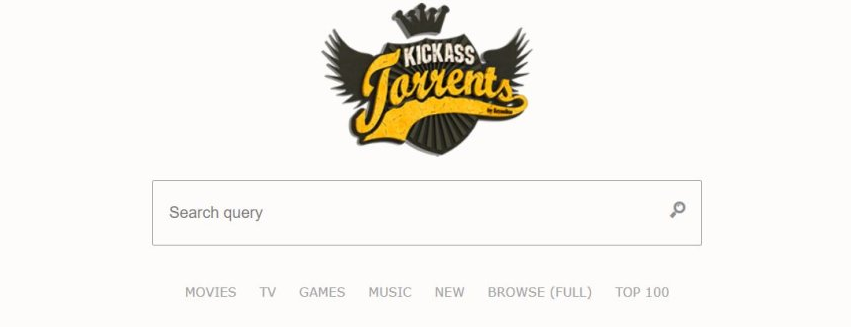What Is Kickass Torrents?
Kickass torrents was a well-known online platform that served as a torrent indexing website, providing users with access to links that directed them to peer-based file sharing networks. Rather than hosting files directly, the platform organized and listed magnet links and torrent files shared by users across the internet. Its main purpose was to simplify the process of locating shared content through peer-to-peer technology, which allows users to download and share files efficiently across distributed networks.
The platform gained popularity due to its user-friendly interface, extensive library, and active community. Users could browse categories, check ratings, and read comments before downloading. This structure helped build trust among its audience, making it one of the most visited torrent-related websites during its peak years.
Also, explore Brightline: What You Need to Know About This Innovative Rail Service
History and Development of Kickass Torrents
How Kickass Torrents Became a Major File-Sharing Directory
Kickass torrents emerged in the late 2000s and quickly grew due to its organized layout and frequent updates. It offered a wide selection of torrents categorized by type, size, and popularity. Unlike many competitors, it provided features such as user rankings and verified uploaders, improving reliability for users seeking trusted content.
The platform also benefited from advancements in file sharing networks that improved download speeds and availability. As more people gained internet access and broadband connectivity, the use of distributed networks became more common, contributing to the platform’s rapid growth.
However, the website faced legal challenges due to copyright issues. Authorities and copyright holders targeted the site, leading to domain seizures and shutdown attempts. Its founder faced legal action, and the original platform ceased operations, although various mirror and imitation sites appeared afterward. Many of these copies are unsafe or unreliable, posing risks for users.
Legal and Security Concerns
Torrent platforms often raise questions regarding legality and safety. While the technology itself is not illegal, downloading or sharing copyrighted material without permission can violate copyright laws in many countries. Users should always focus on legal content such as open-source software, public domain media, and creative commons material.
Security risks are another concern. Some unofficial copies of the platform may contain malware, intrusive ads, or harmful downloads. Users accessing torrent-related websites should exercise caution, use cybersecurity tools, and verify sources. Understanding legal boundaries and potential threats is essential for anyone interacting with content distribution systems online.
Why People Used Kickass Torrents
Many users were drawn to the platform due to its large library and community-driven structure. It allowed people to locate shared files quickly, compare quality, and review feedback from other users. The platform supported both magnet links and traditional torrent files, offering flexibility depending on the user’s software.
Its search functionality and categorization made it easier to navigate compared to other platforms. The rating system helped users avoid low-quality or unsafe files. Community participation played a major role in keeping the directory active and updated.
Legal Alternatives to Torrent Indexing Sites
As digital media consumption continues to grow, many legal alternatives now provide safe and authorized access to content. Streaming services, digital libraries, and software repositories offer reliable and lawful options for accessing media and programs. Examples include licensed streaming platforms, official software distribution sites, and public domain archives.
These legal alternatives provide benefits such as professional support, high-quality content, and reduced security risks. They also ensure that creators and copyright holders receive compensation for their work, supporting continued production.
FAQs
1.What was the purpose of the platform?
Its purpose was to index torrent files and magnet links shared through peer-to-peer networks.
2.Is using torrent technology illegal?
Torrent technology itself is not illegal, but downloading copyrighted material without permission may violate laws.
3.Why was the original site shut down?
Legal actions related to copyright infringement led to domain seizures and the shutdown of the original platform.
4.Are mirror sites safe to use?
Many unofficial copies pose security risks, including malware and harmful downloads.
5.What are legal alternatives?
Legal streaming services, software repositories, and public domain libraries provide authorized access to content.
Conclusion
In conclusion, kickass torrents played a major role in the evolution of peer-to-peer file sharing by offering an extensive directory and community-driven system. While the technology behind it remains influential, legal concerns and security risks highlight the importance of responsible and lawful online behavior. Understanding its history and impact helps users make informed decisions when accessing digital content and exploring modern alternatives that provide safe and legitimate access to media.

Curtain Dry Cleaning and Leather Sofa Cleaning – Reliable Care by Duo Nini

Brian Ferdinand of EverForward Trading Joins Forbes Finance Council, Expanding His Voice on Markets and Risk

Get Any Company Objectives or News of rox.com

How Technology Is Changing Addiction Recovery in the Digital Age.

Our First Winter Trip to Aspen — And the Decision That Made It Stress-Free

What to Expect During Your First NDIS Support Visit

Solve SMD Diodes Sourcing with Utsource's Bulk Options

555 Meaning: Spiritual, Biblical, Love & Prophetic Significance Explained









